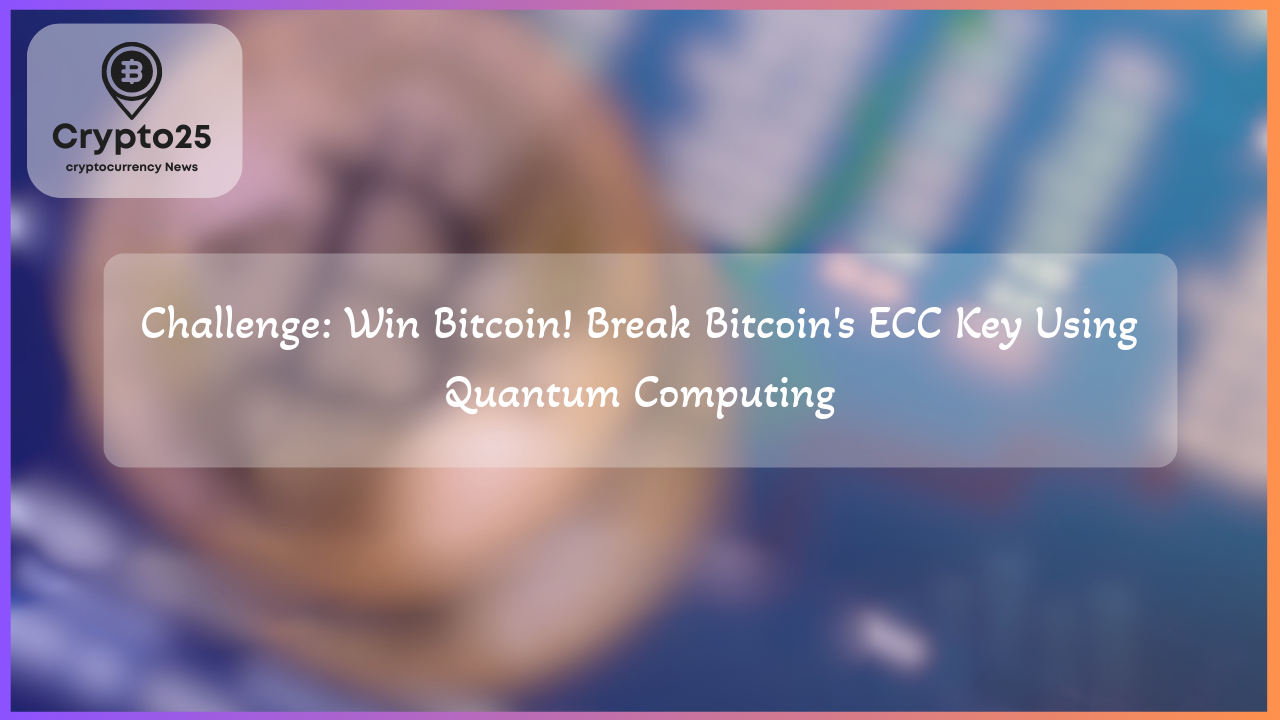
The race to secure Bitcoin and other blockchain networks against quantum computing is heating up, as researchers forecast a future where this technology could disrupt current cryptography. Project Eleven, a leading quantum computing research organization, has introduced the Q-Day Prize—an innovative global challenge offering 1 Bitcoin (BTC) to the first team capable of breaking an elliptic curve cryptographic (ECC) key using quantum computing’s Shor’s algorithm.
### The Q-Day Prize: Quantum Computing Challenges Bitcoin’s Security
Project Eleven’s Q-Day Prize centers on testing the resilience of Bitcoin’s cryptographic framework. The competition tasks participants with utilizing Shor’s algorithm, a revolutionary quantum computing process designed to factorize large numbers efficiently into their prime components. This breakthrough method underscores the potential for quantum computers to compromise widely used cryptographic technologies, such as elliptic curve cryptography, which currently secures Bitcoin transactions.
The stakes are particularly high, as Project Eleven aims to safeguard approximately 6 million BTC (valued at over $500 billion) potentially vulnerable to future quantum attacks. The contest, open globally with a deadline set for April 5, 2026, highlights the urgency surrounding the evolution of quantum technologies. As advancements in quantum computing narrow the timeline for practical deployment, concerns about its implications for blockchain systems have surged.
### Quantum Threats and Vulnerable Bitcoin Wallets
The introduction of the Q-Day Prize coincides with the growing realization that Bitcoin and other blockchain-based systems must prepare for the quantum era. Project Eleven has pinpointed more than 10 million non-zero Bitcoin addresses that could face elevated risks from quantum threats in the coming years. At present, elliptic curve cryptography forms the backbone of Bitcoin’s security infrastructure, but experts caution that this may not withstand the power of quantum computing.
In response to these risks, the cryptocurrency community is actively exploring solutions to defend decentralized networks from quantum-enabled breaches. A notable example is the Quantum-Resistant Address Migration Protocol (QRAMP), proposed through a Bitcoin Improvement Proposal (BIP) aimed at transitioning to post-quantum cryptographic standards. The proposed protocol would create a secure migration path for Bitcoin wallets; however, its adoption would require a contentious hard fork—a significant challenge in gaining network-wide consensus.
| Title | Details |
|---|---|
| Market Cap | $1.2 Trillion |
### Quantum-Enhanced Consensus: An Emerging Solution
Beyond conventional cryptography, startups like BTQ are exploring entirely new paradigms to fortify blockchain systems against quantum threats. BTQ has proposed an alternative consensus mechanism dubbed Coarse-Grained Boson Sampling (CGBS), which leverages the core properties of quantum computing. Using light-based particles known as bosons, this approach would replace traditional proof-of-work (PoW) mining puzzles with quantum-generated sampling tasks for transaction validation.
Although revolutionary, the implementation of CGBS faces practical hurdles similar to QRAMP. It would also require a hard fork, substantially altering Bitcoin’s underlying protocol. This raises critical questions about adoption feasibility, as the cryptocurrency community has historically been cautious about structural changes to ensure network reliability and decentralization.
### Preparing for Bitcoin’s Quantum Future
The rise of quantum computing presents a double-edged sword for the cryptocurrency industry. While breakthroughs in this technology promise unparalleled computational capabilities, they also expose long-standing cryptographic systems to significant risks. The launch of the Q-Day Prize by Project Eleven reflects the pressing need for collaborative innovation in fortifying blockchain networks against these emerging threats.
As Bitcoin developers, researchers, and stakeholders evaluate potential solutions, the global focus remains on balancing security enhancements with blockchain usability and decentralization. Whether through adopting post-quantum cryptography, quantum-based consensus mechanisms, or other novel approaches, the race to secure Bitcoin against quantum disruption has only just begun.
